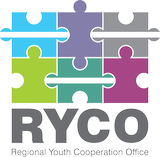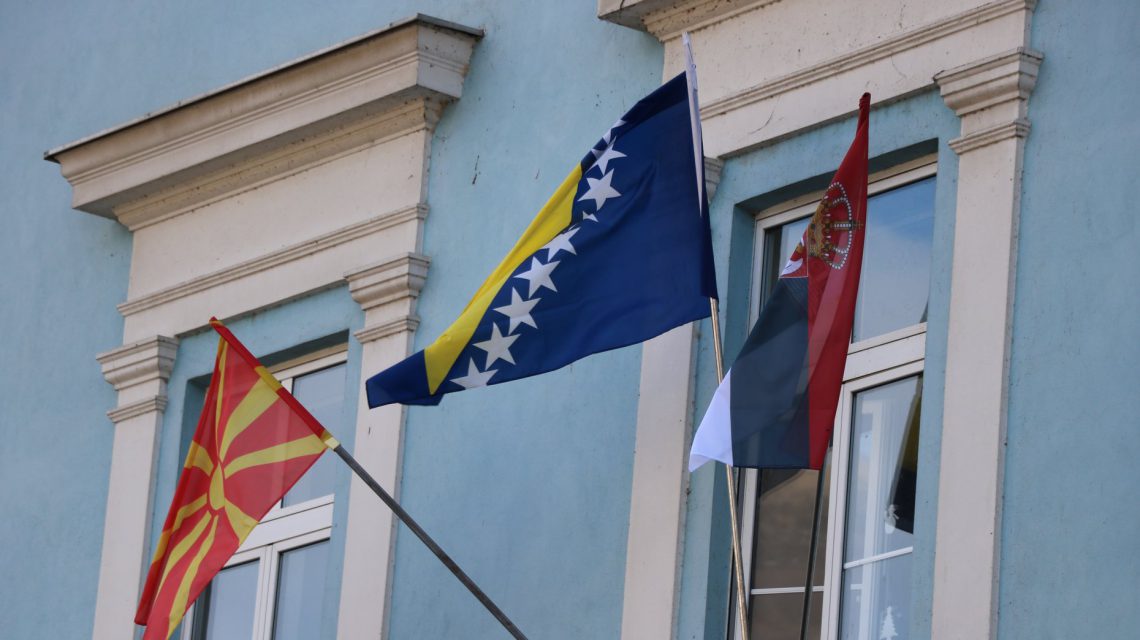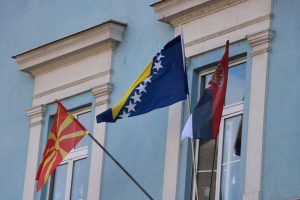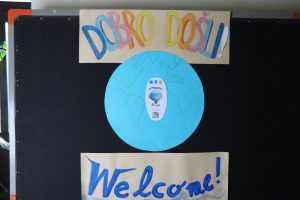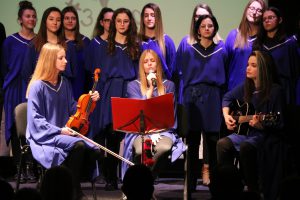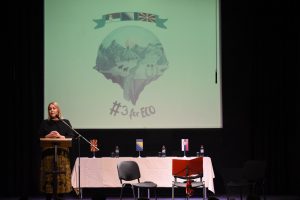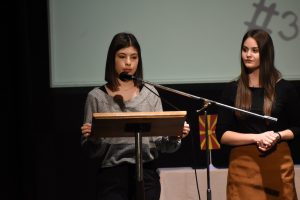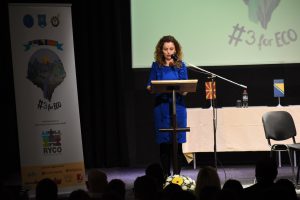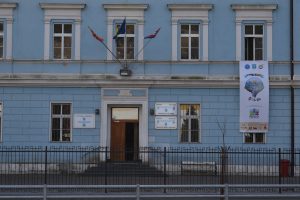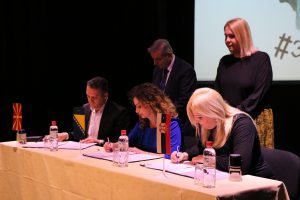TRAVNIK – The project #3forECO supported by RYCO within its third Open Call has kicked off in Travnik, Bosnia and Herzegovina. Implemented by Catholic Schools Centre Petar Barbarić from Travnik, Bosnia and Herzegovina, Secondary School Nace Bugjoni from Kumanovo, North Macedonia and Economic Trade School from Kikinda, Serbia, the project is gathering students and teachers from the three schools.
Directress of the school from Travnik Ms Ivana Ćurčić and Project Coordinator Mr Alen Gudalo addressed the participants of the project’s opening ceremony.
“The main topic of the project is ecology. It aims to raise awareness of the importance of nature conservation, and cooperation of young people,” Mr Gudalo pointed out.
Head of the RYCO Local Branch Office in Bosnia and Herzegovina Ms Berina Bukva attended the activity, too and underlined that the regional projects bring more than just implementation of activities – they connect the region, merge the differences and make relevant steps in making better opportunities for young people of the Western Balkans.
“RYCO sees this project, alongside many others, as an opportunity for young people to get involved in decision-making processes, for their voices to be heard and to make the region a better and safer place in the future,” Ms Bukva highlighted.
Ambassador of North Macedonia to Bosnia and Herzegovina H.E. Mr Ekrem Ebibi also attended the event and was thrilled to see the cross-border cooperation of the young people, especially schools gathered around important issue of todays’ humankind.
“Young people should live alongside nature, so they can receive its benefits,” Ambassador Ebibi told the participants.
The ceremony was finalized by signing a memorandum of cooperation between the three schools involved in the project.
Through #3forECO project, 42 high school students from smaller towns and rural areas (Travnik, Kikinda, Kumanovo) will experience collaboration around ecology, environmental protection and cultural heritage. They will work jointly on shared challenges through micro-projects (e.g. clean up of communal spaces) and learn firsthand about the benefits of cross-border cooperation and intercultural learning.


